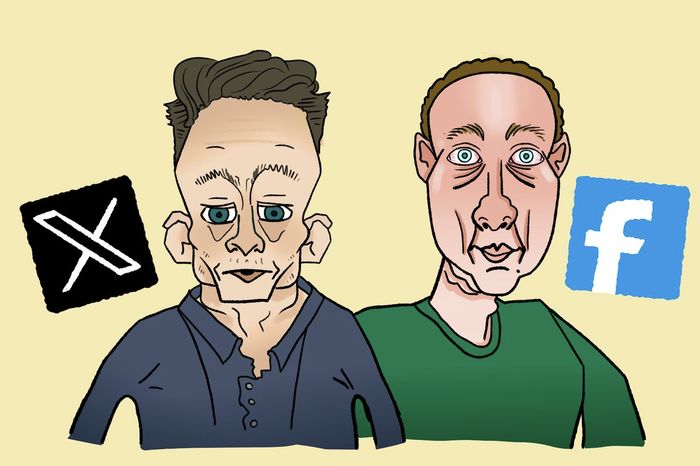Shake off our parasocial politics
Celebrities should neither be valued political resources nor points of validation, argues Rosie Roberts

After months of the internet demanding comment, Taylor Swift has finally released a statement endorsing Harris and the Democrats in the 2024 election. Over 400,000 people registered to vote from her link - compounded with the first round of debates, many have called it a significant boost for Kamala’s campaign. But despite producing what I would consider a positive result, is this level of celebrity involvement in politics really what we want?
Celebrities have been embroiled in politics from the birth of celebrity culture, with Al Jolson (the main star of the first ‘talkie’) endorsing Warren. G. Harding in 1920. This can’t be stopped, and I would say it shouldn’t – everyone has the right to express their opinion. It is the way we have begun to treat celebrity politics that worries me. Our deification of celebrities has given them unchecked power over Western culture, and with it, our critical thinking regarding their political opinions has disintegrated. Desperate to know that our favourite actor or singer agrees with our views, we bombard them online to speak out about almost any issue with little regard for the person’s privacy.
“We should not be hearing about genocides, court cases or general elections from an influencer on ‘X’”
Now, I’m not saying we let the Kanye Wests of this world off the hook; there are many reasons why sharing an opinion isn’t as simple as it seems, and why demanding one is dangerous. The internet was in uproar in 2022 when Heartstopper first aired and no one could answer why seemingly straight Kit Connor was taking a role from a queer actor. Having been attacked for months, Connor was forced to come out to silence questions. Chappell Roan recently confessed that the reason she didn’t accept the White House’s invitation to perform and use it as a protest for Gazan women was out of fear that her family would receive even less government protection from her many stalkers. The list goes on, and it is unfortunately not a new phenomenon. In 2003, the Dixie Chicks criticised G. W. Bush, resulting in them being blacklisted from country music for years. Celebrities are in places of enormous privilege and they should use their resources for good, but they are simultaneously more vulnerable than their fans. Our culture of parasocial relationships with public figures has convinced us that we deserve a level of transparency that we would never ask from a stranger, and that puts them at far more risk.
“Are these people really our desired form of political resource?”
However, there is a more important question to me than why we should be asking for political transparency - who cares? Celebrities are not public figures in the same way politicians, political educators, or even ordinary people speaking out online are. The most successful have a cushion of wealth that allows for immense freedom: wealth which (at a certain level) remains unchallenged no matter what they say. Kanye West was able to use his enormous platform to spout lies about the history of slavery and deny the Holocaust. Any other person would have been fired from their job, but many of West’s fans rallied around him and continued listening to him speak due to their love of his music.
Many who reached success early also have no true experience of normal life: leaving school early to work, never working a typical job, and retiring early. Dylan Minnette said he left acting as it was starting to feel like a job, something we all wish we could choose. Celebrities also don’t work alone. They work with and for an agent, manager, label or more to put out work, and are sanitised for public consumption by a team of PR professionals. It makes no sense why we are so obsessed with getting political validation from a group of people with little expertise or life experience, who express opinions that may not even originate from them.
Are these people really our desired form of political resource? When I see people calling for celebrities to speak on issues, it feels like a wider fault in our political education. We should not be hearing about genocides, court cases or general elections from an influencer on ‘X’. No one would care what Taylor Swift thought about the election if it didn’t have an impact – the fact that it does should worry her fans just as much as Trump supporters. This paves the way for dangerous political movements to capitalise on voter apathy and use major celebrities as marketing tools. The fact that it took a post on Instagram from a singer for 400,000 people to register to vote should be horrifying rather than heartening. Making the 2024 US election into a popularity contest, not between the candidates but the celebrities endorsing them, reinforces our lost capacity to make informed political decisions on our own. Maybe it’s time to ditch ‘X’, and go back to the news.
 News / Clare Hall spent over £500k opposing busway 24 December 2025
News / Clare Hall spent over £500k opposing busway 24 December 2025 Comment / The ‘class’ of Cambridge24 December 2025
Comment / The ‘class’ of Cambridge24 December 2025 News / Caius mourns its tree-mendous loss23 December 2025
News / Caius mourns its tree-mendous loss23 December 2025 News / Girton JCR publishes open letter expressing solidarity with Palestine25 December 2025
News / Girton JCR publishes open letter expressing solidarity with Palestine25 December 2025 Comment / Yes, I’m brown – but I have more important things to say22 December 2025
Comment / Yes, I’m brown – but I have more important things to say22 December 2025










